Underbilling your time is one of the fastest ways to drain your creative business. If you’re pouring hours into projects but your bank account says otherwise, unbilled hours may be to blame.
You’re not alone. Many creative pros love the work but hate the clock. But when you lose track of time—or don’t bill for it—your profit walks out the door.
Here’s how to spot the leaks, take control, and make sure every hour counts.
1. Track everything—even “quick” tasks
• Tiny tasks add up fast
Answering emails. Revising a graphic. Fixing a typo on a client’s site. Those 10-minute favors you don’t log? They cost you.
• Use a time tracking tool that works for you
Tools like FreshBooks, Xero, or even QBO can help. Cloud accounting with built-in timers Cloud accounting with built-in timers gives you a clearer picture of your day – and reveals how many hours you’re not charging for.
Pro Tip: Choose a tool you’ll actually use daily. Simplicity beats bells and whistles. I’m using an electronic timer in my workflow app. But at the same time, I’m also using a simple desk-top timer until I train myself to make ‘punching the clock’ a habit. It sits right by my keyboard so it’s easy to see and remember. For you, maybe it’s on your drafting table, design board. Just put it where you typically work.
2. Review time vs. pricing weekly
• Time reports don’t lie
Check how long you actually spent on client work versus how much you charged. Are you billing for 15 hours when you worked 22?
• Make it part of your “CEO Day”
This is your chance to see the story behind your time. Get ahead of the next week, not stuck in last week’s mistakes.
Pro Tip: There’s a fine balance between adding value and giving away too much. Over-delivering can impress, but it can also train clients to expect more than they’re paying for. If you’re always over-delivering for every client, it’s time to raise your rates or tighten your scope.
3. Set clear project scopes (and stick to them)
• Scope creep steals profits
“Can you just add this one thing?” sounds harmless—until it eats 6 unpaid hours. Set clear boundaries at the start.
• Put change requests in writing
When clients ask for extras, pause. Reframe: “I’d be happy to add that. I’ll follow up with a revised estimate for the additional work.”
Pro Tip: Include 1–2 rounds of revisions – in detail if necessary – in your proposals. Anything more? That’s extra. Make sure that’s spelled out in your service agreement.
4. Value your creative energy, not just your time
• Creative work isn’t just minutes on a clock
You’re not a machine. Thinking, planning, researching—it’s all part of the job, even if your hands aren’t on the keyboard.
• Bill for the outcome, not the hours
Package your services. Flat-rate or value-based pricing gives clients clarity and gives you control.
Pro Tip: Read our post on Tracking Project Profitability: Maximize Your Profit Margins.
5. Fix your invoice habits
• Send invoices on time
If you’re always playing catch-up, money gets delayed. Automate recurring invoices where you can.
• Add late fees—and enforce them
Many creatives include late payment terms but never follow through. It sends the wrong message.
• Related Articles:
Cash Flow Mistakes to Avoid: How to Keep Payments Coming In
8 Easy Ways to Keep Your Accounts Receivable Up to Date
Pro Tip: Use tools like FreshBooks or Xero to schedule and track invoices without losing your momentum – or your mind!
6. Know when to outsource
• Admin work eats your billable hours
If you’re spending more time trying to organize your books, chasing paperwork, or fretting about it all than you are doing creative work, it’s time to delegate.
• Outsource tasks that slow you down
Bookkeeping, appointment scheduling, email follow-ups, and even keeping your client database (CRM) organized can be handed off to free your time.
Pro Tip: Try this: Track your non-billable time for a week. You might be shocked where it goes.
7. Check your numbers often
• Your time is your inventory
Just like a store checks stock, you need to check how much time you’ve “sold” versus how much you gave away.
• Review financial reports monthly
Tools like dashboards and project profitability reports help you stay on track. If numbers aren’t your thing, that’s okay—just don’t ignore them. Consistency pays.
For a practical guide on understanding billable rates and improving your revenue, check out this resource from Scoro on calculating billable rates and your average billable rate
Final Thoughts
Underbilling your time doesn’t just hurt your income—it chips away at your confidence. When you track your hours, set smart boundaries, and value your work, you don’t just earn more—you build a business that works for you.
Don’t let unpaid hours pile up quietly. Start billing what you’re worth today.
Curious if we’re the right match? Before diving into the details, let’s make sure we’re on the same page.
👉 Let’s Get Acquainted — a quick, no-pressure 20-minute call to talk about what you need and see if my approach fits.



